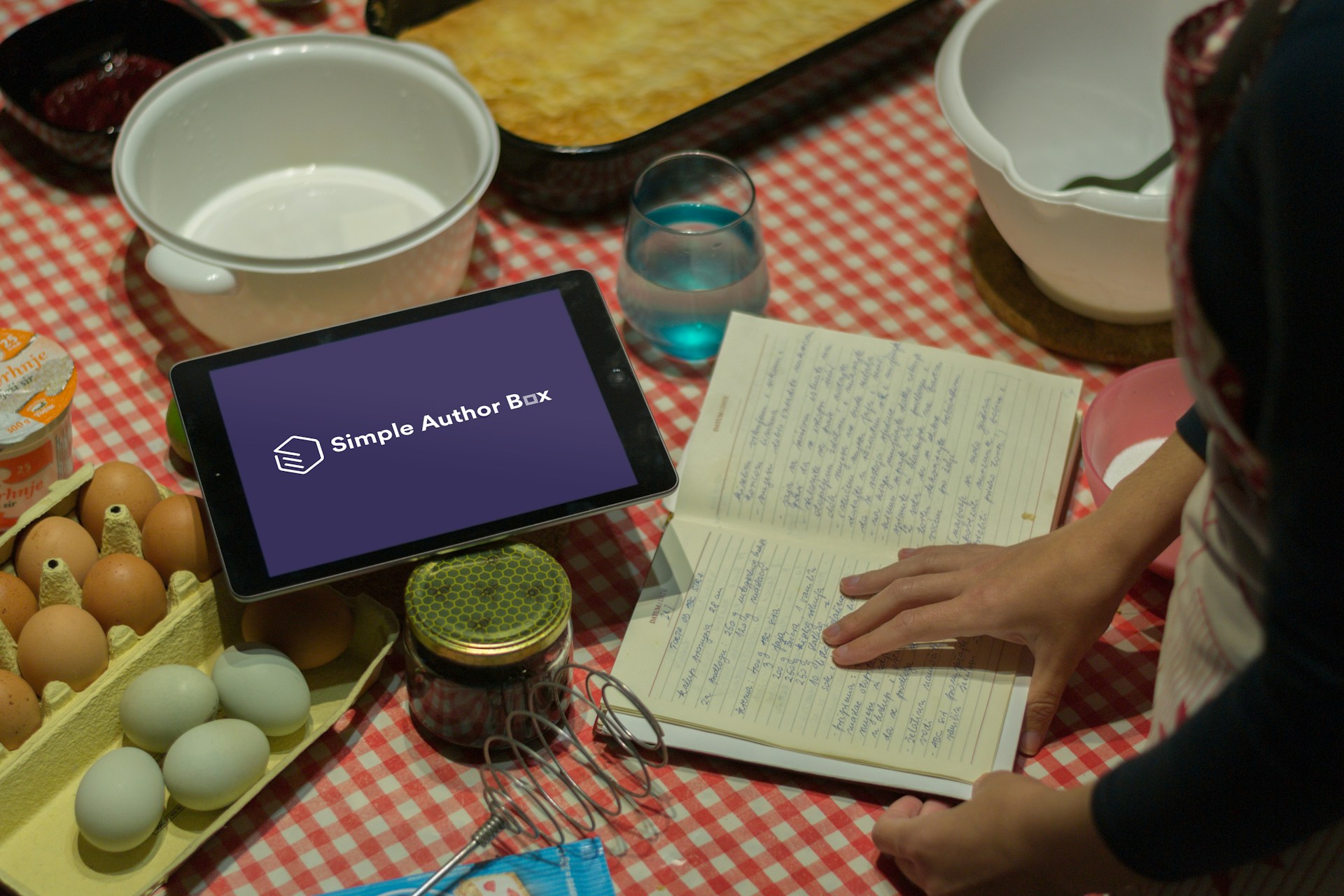The Impact of Vitamin C Intake and Water Consumption on Perceived Fatigue among Female Tile Workers
Pengaruh Konsumsi Vitamin C dan Konsumsi Air terhadap Kelelahan Subjektif pada Pekerja Perempuan Pembuatan Genting

Background: The tile industry is known for its demanding nature, primarily due to the high energy requirements involved. The manual production methods necessitate significant physical exertion, including the lifting and transportation of heavy, large tiles. This can lead to fatigue as a result of lactic acid buildup in the muscles. Research indicates that burnout rates among workers in the tile industry can reach as high as 82%.
Objectives: To analyze the effect of vitamin C consumption and drinking water consumption on perceived fatigue levels among female workers in the tile manufacturing sector.
Methods: This research employed a quasi-experimental design, involving a sample of 52 female workers engaged in tile production for each group. Each group participated in an experimental procedure lasting 6 days, after which they were assessed for levels of fatigue. The independent variables examined were the intake of Vitamin C and water, while the dependent variable was the participants' subjective experience of fatigue. Subjective fatigue was quantified using the Work Fatigue Feelings Measurement Questionnaire (KAUPK2). The statistical methods applied included the Wilcoxon Test and the Kruskal-Wallis test.
Results: The findings indicated that both Vitamin C intake and water consumption significantly influenced subjective fatigue levels before and after the intervention (p-value=0.000). Based on the results of the analysis before being given vitamin C, the subjective fatigue score was 51 after being given vitamin C, it dropped to 25. In contrast, before the introduction of drinking water, the subjective fatigue score was 48.23, which subsequently fell to 31.52 after water consumption. The analysis revealed a notable difference in the average subjective work fatigue scores post-intervention.
Conclusions: The intake of Vitamin C and adequate water consumption effectively reduces subjective work fatigue among female tile-making workers. Consequently, it is recommended that industry owners ensure the provision of sufficient drinking water and Vitamin C for their employees.
Badan Pusat Statistik Indonesia. [SAKERNAS] Jumlah Dan Persentase Penduduk Berumur 15 Tahun Ke Atas Yang Bekerja Menurut Formal/Informal (Jiwa), 2019-2021. (2021). Available from: https://www.bps.go.id/id/statistics-table/1/MjIwMiMx/population-15-years-of-age-and-over-who-are-working-by-province-and-main-employment-status--2022.html.
dlh.grobogan.go.id. Potensi Industri. at https://dlh.grobogan.go.id/index.php/ppid/informasi-grobogan/1127-potensi-industri (2022).
M, H. Prospek Usaha Kecil dalam Wadah Inkubator Bisnis. (Ghalia Indonesia, 2009). Available from: https://opac.perpusnas.go.id/DetailOpac.aspx?id=507602.
Zhang, H., Liu, Y., Zhou, J., Wang, J. & Sun, B. Amylopectin is the anti-fatigue ingredient in glutinous rice. Int. J. Biol. Macromol. 63, 240–243 (2014). DOI: 10.1016/j.ijbiomac.2013.11.001.
Ningrum, D. A. & Rahayu, N. I. Perbandingan Metode Hydrotherapy Massage Dan Massage Manual Terhadap Pemulihan Kelelahan Anaerobic Lactacid Pasca Olahraga. J. Terap. Ilmu Keolahragaan 3, 30–33 (2018). DOI: 10.17509/jtikor.v3i1.11501.
Rahmawati, R. & Afandi, S. Faktor-Faktor Yang Berhubungan Dengan Kelelahan Kerja Pada Perawat Di RSUD Bangkinang Tahun 2019. PREPOTIF J. Kesehat. Masy. 3, 41–45 (2019). DOI: 10.31004/prepotif.v3i2.478.
Nugraheni, A. B. Hubungan Antara Beban Kerja Fisik Dengan Kelelahan Kerja Pada Tenaga Kerja Bagian Produksi Tulangan Beton Di Pt Wijaya Karya Beton Tbk. PBB Majalengka. (Universitas Muhammadiyah Surakarta, 2015). Available from: https://eprints.ums.ac.id/37600/.
Harmer, A. R. et al. Effects of type 1 diabetes, sprint training and sex on skeletal muscle sarcoplasmic reticulum Ca2+ uptake and Ca2+-ATPase activity. J. Physiol. 592, 523–535 (2014). DOI: 10.1113/jphysiol.2013.261172.
Zhu, M., Zhu, H., Ding, X., Liu, S. & Zou, Y. Analysis of the anti-fatigue activity of polysaccharides from: Spirulina platensis: role of central 5-hydroxytryptamine mechanisms. Food Funct. 11, 1826–1834 (2020). DOI: 10.1039/c9fo02804h.
Widiyanto. Latihan Fisik dan Asam Laktat. (Pendidikan Kesehatan dan Rekreasi, 2012). DOI: 10.21831/medikora.v0i1.4720.
Tarwaka. Ergonomi Industri (Dasar-dasar Pengetahuan Ergonomi dan Aplikasi di Tempat Kerja. Harapan Press (2015). Available from: https://tarwaka.wordpress.com/2015/01/20/buku-ergonomi/.
Khikmah, N. Hubungan Kelelahan Kerja terhadap Siklus Menstruasi pada Perawat Wanita di RSUD Kebayoran Lama. Jakarta J. Heal. Sci. 2, 837–842 (2023). DOI: 10.21831/medikora.v0i1.4720.
Rahmawati, D. A. Hubungan Kelelahan Kerja Dengan Siklus Menstruasi Pada Pekerja Wanita Sektor Formal Di Kabupaten Magelang Tahun 2020. Univ. Muhammadiyah Magelang 4–11 (2020). Available from: http://eprintslib.ummgl.ac.id/2500/.
Mayasari, A. Perbedaan Kelelahan Perawat Wanita. J. KEMAS 7, 28–34 (2011). DOI: 10.15294/kemas.v7i1.1790.
Martelli, M., Zingaretti, L., Salvio, G., Bracci, M. & Santarelli, L. Influence of work on andropause and menopause: A systematic review. Int. J. Environ. Res. Public Health 18, 1–20 (2021). DOI: 10.3390/ijerph181910074.
Prasetio, D. B., Setyaningsih, Y., Suhartono & Suroto. Individual, Habits, and Work Environment Factors Associated With Blood Lactic Acid Levels in Roof Tile Manufacturing Workers. Malaysian J. Public Heal. Med. 23, 253–260 (2023). DOI: 10.37268/mjphm/vol.23/no.1/art.1868.
Arfandi Setiawan, M., Awaluddin, A., Wahyuni, A. & Rohim Tualeka, A. Factors Associated with Work Fatigue in Workers of the Nipah Building Construction Project Makassar. Indian J. Public Heal. Res. Dev. 11, 1289 (2020). DOI: 10.37506/v11/i1/2020/ijphrd/194020.
Taufiq Ihsan, Tivany Edwin, Yasinta Azwir, V. D. Fatigue analysis to evaluate workloads in production area at crumb rubber factories of Padang city, West Sumatra Indonesia. Indian J. Occup. Environ. Med. 24, 1–23 (2016). DOI: 10.4103/ijoem.IJOEM_252_19.
Duddagi, M. & Jadhav, V. S. Occupational health hazards of women workers in brick industry. Pharma Innov. J. 9, 313–316 (2020). Available from: https://www.thepharmajournal.com/archives/2020/vol9issue5/PartF/9-5-18-925.pdf.
Devi, F. A., Setyaningsih, Y. & Widjasena, B. Relationship Between Physical Workload , Work Fatigue , and Drinking Water Consumption to Work Productivity of Brickmakers. Disease Prevention and Public Health Journal. 17, 93–99 (2023). DOI: 10.12928/dpphj.v17i1.6674.
Wibowo, T., Sukaryawan, I.M., Hatmoko, J. U. D. Identifying Causal Factors of Accidents Related to Working at Height: A Case Study of a Construction Company. in International Conference on Engineering and Information Technology for Sustainable Industry, ICONETSI 2020 3429792 (ACM International Conference Proceeding Series, 2020). DOI: 10.1145/3429789.3429792.
Perdana, R.G., Sahroni, T. R. Analysis of human and ergonomic factor influence for preventing major accident in offshore oil and gas industry. Int. J. Mech. Eng. Technol. 10, 1620–1628 (2019). Available from: http://www.iaeme.com/IJMET/issues.asp?JType=IJMET&VType=10&IType=2.
Gümüş, S., Okan, S. Ü. & Hatay, T. Y. Analysis of work accidents in wood harvesting: A case study of the East Black Sea region. Forestist 70, 1–7 (2020). DOI: 10.5152/forestist.2020.19008.
Istiqomah, A. N. & Adi, A. C. Pengaruh Tingkat Konsumsi Vitamin C Dengan Tingkat Kelelahan Pada Karyawan BRI. J. Kesehat. Tambusai 4, 1932–1937 (2023). DOI: 10.31004/jkt.v4i3.16801.
Asih, P. R. & Putri, N. K. Faktor-Faktor yang Berhubungan Dengan Kelengkapan Imunisasi Dasar di Kabupaten Bojonegoro. Media Gizi Kesmas 11, 72–78 (2022). DOI: 10.20473/mgk.v11i1.2022.72-78.
Rusiani, E., Junaidi, S., Subiyono, H. S. & Sumartiningsih, S. Suplementasi Vitamin C dan E untuk Menurunkan Stres Oksidatif Setelah Melakukan Aktivitas Fisik Maksimal. Media Ilmu Keolahragaan Indones. 9, 32–37 (2019). DOI: 10.15294/miki.v9i2.23582.
Rahmuniyati, M. E., Rahfiludin, Z. & Kartini, A. Pengaruh Pemberian Air Minum Dan Air Glukosa Terhadap Status Hidrasi Dan Kelelahan Pekerja Pande Besi. J. Formil (Forum Ilmiah) Kesmas Respati 1, 69–78 (2016). DOI: 10.35842/formil.v1i2.20.
Yenni, M., Husaini, A. & Wuni, C. Efektifitas Latihan Peregangan terhadap Penurunan Kadar Asam Laktat. J. Formil (Forum Ilmiah) KesMas Respati 5, 147–160 (2020). DOI: 10.35842/formil.v5i2.327.
P2PTM, K. R. Tabel Batas Ambang Indeks Massa Tubuh (IMT). at https://p2ptm.kemkes.go.id/infographic-p2ptm/obesitas/tabel-batas-ambang-indeks-massa-tubuh-imt (2019).
Maurits, L. S. K. Selintas tentang Kelelahan Kerja. (Amara Books, 2010). Available from: http://kin.perpusnas.go.id/DisplayData.aspx?pId=175198&pRegionCode=UN11MAR&pClientId=112.
Ullah, H. et al. Combination of Chemically Characterized Pomegranate Extract and Hydrophilic Vitamins against Prolonged Fatigue : A Monocentric, Randomized, Double-Blind, Placebo-Controlled Clinical Trial. Nutrients 15, 2883 (2023). DOI: 10.3390/nu15132883.
Popovic, L. M. et al. Influence of vitamin c supplementation on oxidative stress and neutrophil inflammatory response in acute and regular exercise. Oxid. Med. Cell. Longev. 2015, 1–7 (2015). DOI: 10.1155/2015/295497.
Esposito, C. et al. Chemical Characterization and Preliminary Evaluation of the Efficacy and Tolerability of a Food Supplement Based on Pomegranate Extract, B Vitamins, and Vitamin C against Prolonged Fatigue in Healthy Consumers. Processes 10, 1–15 (2022). DOI: 10.3390/pr10020208.
Huck, C. J., Johnston, C. S., Beezhold, B. L. & Swan, P. Vitamin C status and perception of effort during exercise in obese adults adhering to a calorie-reduced diet. Nutrition 29, 42–45 (2013). DOI: 10.1016/j.nut.2012.01.021.
Andani, S. A. & Widyastuti, N. Pengaruh pemberian jus jeruk manis (citrus sinensis.) terhadap nilai VO2 max atlet sepak bola di Gendut Dony Training Camp (GDTC) Salatiga. J. Gizi Indones. (The Indones. J. Nutr. 5, 68–74 (2017). DOI: 10.14710/jgi.5.2.68-74.
pathy, K. Process for Preparation of Vitamin C and Method for Determination of Vitamin C in Tablets. Surg. Case Stud. Open Access J. 1, (2018). DOI: 10.32474/scsoaj.2018.01.000114.
Close, G. L. et al. Ascorbic acid supplementation does not attenuate post-exercise muscle soreness following muscle-damaging exercise but may delay the recovery process. Br. J. ofNutrition 95, 976–81 (2006). DOI: 10.1079/bjn20061732.
Zhang, J., Zhang, N., He, H., Du, S. & Ma, G. Different amounts of water supplementation improved cognitive performance and mood among young adults after 12 h water restriction in baoding, China: A randomized controlled trial (RCT). Int. J. Environ. Res. Public Health 17, 1–17 (2020). DOI: 10.3390/ijerph17217792.
Zhang, N., Du, S. M., Zhang, J. F. & Ma, G. S. Effects of dehydration and rehydration on cognitive performance and mood among male college students in Cangzhou, China: A self-controlled trial. Int. J. Environ. Res. Public Health 16, 1–13 (2019). DOI: 10.3390/ijerph16111891.
Tarwaka. Keselamatan dan Kesehatan Kerja, Manajemen Implementasi K3 di Tempat Kerja. (2014). Available from: https://lib.undip.ac.id/index.php?p=show_detail&id=6655&in=Fakultas%20Kesehatan%20Masyarakat.
Ibraimov, A., Akhunbaev, S. & Uzakov, O. The Missing Link in the Human Thermoregulation Systems. Biomed. Res. Clin. Rev. 6, 01–08 (2022). DOI: 10.31579/2692-9406/105.
Watt, M. J., Garnham, A. P., Febbraio, M. A. & Hargreaves, M. Effect of acute plasma volume expansion on thermoregulation and exercise performance in the heat. Med. Sci. Sport. Exerc. 32, 958–962 (2000). DOI: 10.1097/00005768-200005000-00013.
Pilch, W. et al. Effects of Elevated Body Temperature on Selected Physiological Indices and Thermal Stress in Athletes and Non-Athletes. J. Hum. Kinet. 84, 112–123 (2022). DOI: 10.2478/hukin-2021-0131.
Jéquier, E. & Constant, F. Water as an essential nutrient: The physiological basis of hydration. Eur. J. Clin. Nutr. 64, 115–123 (2010). DOI: 10.1038/ejcn.2009.111.
Ball, P. Water is an activematrix of life for cell and molecular biology. Proc. Natl. Acad. Sci. U. S. A. 114, 13327–13335 (2017). Doi: 10.1073/pnas.1703781114.
OSHA. OSHA QUICK CARD: Protecting Workers from Heat Stress. (Occupational Safety and Health Administration, 2014). Available from: https://www.osha.gov/sites/default/files/publications/OSHA3743.pdf.
Copyright (c) 2025 Amerta Nutrition

This work is licensed under a Creative Commons Attribution-ShareAlike 4.0 International License.
AMERTA NUTR by Unair is licensed under a Creative Commons Attribution-ShareAlike 4.0 International License.
1. The journal allows the author to hold the copyright of the article without restrictions.
2. The journal allows the author(s) to retain publishing rights without restrictions
3. The legal formal aspect of journal publication accessibility refers to Creative Commons Attribution Share-Alike (CC BY-SA).
4. The Creative Commons Attribution Share-Alike (CC BY-SA) license allows re-distribution and re-use of a licensed work on the conditions that the creator is appropriately credited and that any derivative work is made available under "the same, similar or a compatible license”. Other than the conditions mentioned above, the editorial board is not responsible for copyright violation.












































